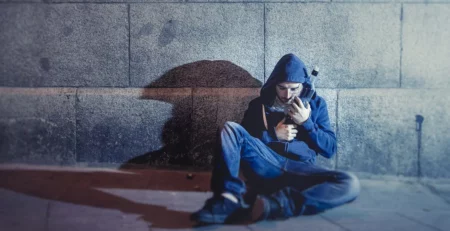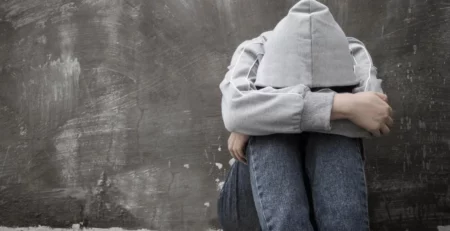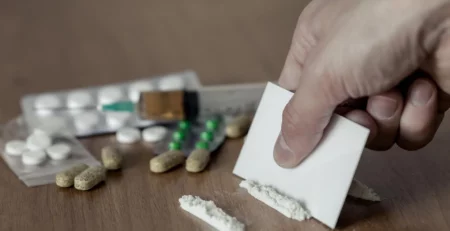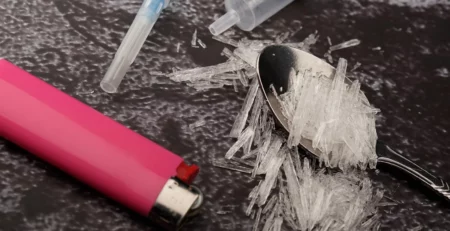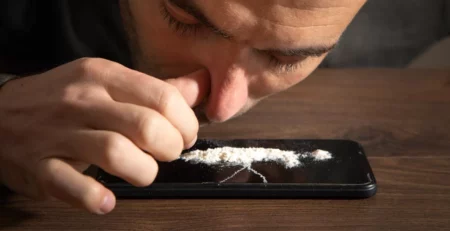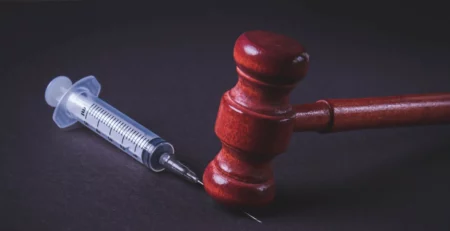What Happens in Rehab?
The Processes and What to Expect at a Solid Treatment Center
Have you ever wondered what happens in rehab? If you or a loved one struggles with substance abuse, it’s natural to have questions about what to expect during addiction treatment programs. The truth is that the therapeutic process has been proven highly effective.
But it’s also true that the recovery process takes a tremendous amount of courage and effort. Most who have overcome substance abuse will tell you that it was worth every minute.
Icarus Behavioral Health in Nevada offers the top substance abuse treatment program in the Las Vegas area. We offer evidence-based rehab programs in a luxury setting with a high rate of positive outcomes. Treating addiction and co-occurring disorders is our specialty, and we will gladly put together a treatment plan for you or your loved one.
Keep reading if you hope to learn more about what happens in drug or alcohol rehab centers. We will explain some hard facts and debunk some urban legends about addiction treatment programs.
The Substance Abuse and Mental Health Services Administration Data Exposes a Critical Need

SAMHSA, the Substance Abuse and Mental Health Services Administration, compiles an annual report that provides federal and state health officials with a snapshot of the current state of substance abuse and mental health conditions in the United States.
The 2022 report revealed some concerning statistics. For instance:
- 4 million Americans over age 12 have drank alcohol in the past month. Of those, 44.5% of survey respondents admitted to binge drinking.
- 3 million Americans over age 12 have used illicit drugs within the past year. That number includes the abuse of prescription drugs.
- 7 million Americans who responded to the survey likely have substance use disorders.
These numbers are staggering and prove that you aren’t alone in the need for medical support services from a qualified alcohol or drug abuse treatment facility.
Get Effective Detox and Rehab Options at Icarus
Drug and Alcohol Rehab Is Not Always a Linear Process
Many people visualize alcohol and drug rehab as a tidy step-by-step process. While it can be that way, the treatment process is not always so.
Think back to childhood, playing the game where you’d advance to a finish line by climbing up ladders. Land on the wrong square, and you would backslide. Some downward slides took you backward just a single row on the game board, while others took you all the way back to the starting block.
Addiction recovery is similar to that. We want every person to succeed and have long-term recovery. Some sail through treatment sessions without setbacks, while others might take just a longer route to get there.
‘JJ’ Proves That No Clients Follow the Same Path

‘JJ’ came to Icarus for residential rehab after trying a local Las Vegas methadone clinic and then a short stint in an intensive outpatient rehab center. Both times, JJ stayed clean for several weeks and eventually relapsed. JJ wanted to quit using meth and regain his former good looks. When he looked in the mirror in a rare moment of sobriety, they saw the rotting teeth, sallow skin, and scabs and scars that are so common with meth addiction.
JJ tried to get help. However, his workplace insurance only allowed for outpatient care, not residential rehab. JJ reached out to Icarus for a third try at sobriety, despondent, and not sure where else to turn.
The admissions specialist at Icarus called JJ’s group health insurance company and explained the severity of JJ’s declining physical and mental well-being. With two failed efforts at outpatient drug rehab, the insurer approved JJ for 28 days of inpatient addiction treatment.
The Difference in Results at Icarus in Nevada
JJ knew that detox wasn’t easy – he’d already done it twice in the past. But this time, JJ found the process more comfortable, thanks to the Icarus detox professionals. JJ worked hard during his time at the addiction treatment center. After leaving, JJ attended Narcotics Anonymous for continued support.
This time around, the addiction treatment gave JJ a more comprehensive toolkit to fall back on after leaving treatment. JJ has stayed clean and sober for over a year now, and they’re so grateful that they tried the third attempt at treatment instead of giving up. The third time really was the charm for JJ.
Addiction Is a Chronic Disease, Not a Moral Failing

Step One of Alcoholics Anonymous and Narcotics Anonymous admits that their members are powerless over drugs or alcohol:
“We admitted we were powerless over alcohol (or drugs) –that our lives had become unmanageable” – AA Big Book, Step One
That inability to control the urge to use is because drug and alcohol abuse is a chronic disease with a diagnosis: Drug Use Disorder or Alcohol Use Disorder. You did not simply wake up one day and decide to become addicted to substances; substance use gradually worsened until the disease dominated your life.
Once clients understand this truth, it helps them shift their perspective. They’re living with a challenging disease. They would not think less of someone for having asthma. Or migraines. Or for having any other chronic condition, for that matter. So why should clients think less of themselves for struggling with an addiction to alcohol, street drugs, or prescription pills?
Alcohol Addiction Isn’t Less Severe Just Because It’s Legal
Many believe that it’s safe to drink alcohol just because it’s legal. But the fact is that using drugs or alcohol can be dangerous if you use it too frequently, in ever-increasing amounts, or drink excessively, alcohol consumption can be problematic.
Ditto for marijuana use in states that have legalized it. Just because a substance is legal, that doesn’t mean it can’t lead to addiction.
Your Recovery Journey Requires a Structured Routine

Icarus Behavioral Health Nevada offers numerous levels of care to meet clients’ needs:
- Short-term residential treatment programs
- Long-term residential treatment
- Intensive outpatient treatment
- Partial hospitalization outpatient programs
Whether you choose outpatient rehab or an inpatient treatment option, we will provide you with a structured schedule.
The structure we offer helps you feel some stability and helps you understand what to expect in the next phase of addiction rehab. It also helps create accountability, a skill you must hone for a successful recovery journey after you leave your treatment programs.
Get Accredited Treatment Programs at Icarus
The Services of Effective Substance Use Disorder Treatment Programs
Keep in mind that the steps may sometimes not fall into order perfectly. With that said, here is a general consensus of the ideal order you’ll likely observe in the supportive environment of treatment centers:
Intake and Assessment of Substance Use Disorders
The first day in rehab starts with a meeting with an intake specialist. This short meeting helps the rehab center team assess your physical and mental health, helping our clinical staff design the best individual behavioral therapy plan to meet your needs.
They’ll also account for any physical health concerns that may need to be addressed as part of your care plan.
Withdrawal Symptoms and Drug and Alcohol Detox
Clients who reach out for help often express how they want to get clean and sober but dread detoxification, the next step in the rehab process.
Medical detox in an approved professional facility can lessen your withdrawal symptoms. Your brain has grown accustomed to chemicals and substances and has rewired your internal reward system.
When you stop giving the brain what it wants (drugs or alcohol), it responds like a spoiled toddler throwing a temper tantrum. In the case of opioid and alcohol abuse, the symptoms of withdrawal can be especially severe and may require medication-assisted treatment.
However, withdrawing under the supervision of rehab facilities brings some relief. The staff can prescribe addiction medicine that can alleviate the discomfort and monitor your mental and physical health during the process.
Intensive Counseling and Behavioral Therapy Sessions

The next step in overcoming addiction, behavioral therapies and counseling, usually overlaps with the final days of detoxification.
Individual Therapy Sessions: Building Blocks for Sober Living
We use evidence-based therapies to get excellent results, such as these individual therapy models:
- Cognitive-behavioral therapy
- Motivational interviewing
- Dialectical behavioral therapy
We also believe providing clients with access to holistic therapies, such as adventure therapy, mindfulness training, and other coping strategies that support your new, healthy lifestyle. These therapies are available to both inpatient rehab and outpatient treatment clients.
Group Therapy Sessions: Your Peers Are a Valuable Resource
Both inpatient treatment clients and those in the outpatient program will usually receive group therapy as they progress through the rehab program. In group therapy, you find a dedicated safe space, where you can share your life lessons with your peers and gain valuable takeaways from their experiences.
Group therapy sessions are vital in showing you that you are not alone in your addiction. There are many who share your struggles, and group therapy is the place where you can work with others who understand the hard work that goes into completing treatment at the rehab facility.
Family Therapy: Your Loves Ones Can Be Important in Preventing Relapse
Your loved ones are key in helping you stay clear of substance use, especially in the first days of early recovery. They have seen the impact of drug or alcohol abuse in your life. Perhaps they have been hurt by the alcohol and drug abuse.
This step of a residential or outpatient treatment plan is also an educational opportunity for your family. These sessions can be a chance for them to learn more about any role they played in enabling drug or alcohol use.
Aftercare Planning (Relapse Prevention)

Your last day in rehab will come all too soon. What will you do after you leave the structured, safe environment of your inpatient program or outpatient rehab facility?
That’s where a relapse prevention plan comes in.
Approximately three to six weeks into your outpatient rehab or inpatient program, depending on your total program length, you will start to create a relapse prevention plan. You will also want to consult our worksheets for people out of inpatient treatment. You’ll work in individual therapy and sometimes with peer groups to make a game plan for avoiding the people, situations, and places that will challenge you.
Meet Talisha: Her Aftercare Plan Was Very Successful
‘Talisha,’ a past client, learned the hard lesson that the people she once partied with were not true friends. She had spent most of her time with them until she got arrested for minor possession charges. She opted for the intensive outpatient program as part of a court-ordered first-time offender diversion program, narrowly avoiding a jail sentence.
Instead of hanging out in that same troublesome neighborhood after addiction treatment, Talisha’s grandmother allowed her to move in with her for six months while she found a new job and saved money for an apartment. She would be all the way across Las Vegas from the spots she used to frequent and gave herself a sensible time limit to reach her goal of becoming independent again.
Up To 100% of Rehab Costs Covered By Insurance – Call Now!
Contact Icarus in Nevada for Effective Treatment Programs
Do you need an effective residential rehab center or outpatient treatment program? Icarus Behavioral Health has helped numerous clients with long-lasting recovery. If you have any additional questions about residential treatment versus an outpatient program, please call us today. We know that admitting you or a loved one needs addiction treatment – then following through with making that call to rehab centers – is a courageous act.
We are here to help you and can often accommodate same-day drug/alcohol rehab admissions.




